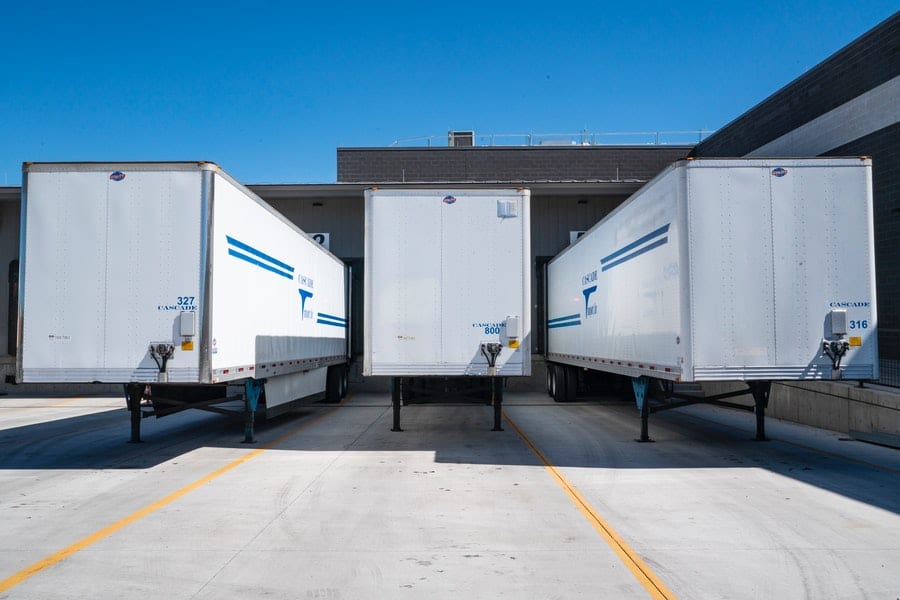Introduction

Image: newtheory.com
In a world where transportation and logistics are paramount, the demand for rental trailers has been steadily rising. Whether it’s to accommodate seasonal surges, cater to relocation needs, or support construction projects, the trailer rental business offers lucrative opportunities for aspiring entrepreneurs. This comprehensive guide will provide you with an in-depth roadmap to help you navigate the ins and outs of starting a thriving trailer rental enterprise.
The Basics: Getting Started
-
Market Research: Before embarking on this entrepreneurial journey, conduct thorough market research to identify unmet needs, competition, and target customer segments. Analyze industry trends, demographics, and economic factors to ascertain the viability of your business idea.
-
Business Structure: Determine the most suitable legal structure for your business, such as LLC, corporation, or sole proprietorship. Each structure has its own implications for liability, taxation, and operations.
-
License and Permits: Obtain the necessary licenses and permits from local and state authorities, including business licenses, motor carrier operating permits, and insurance requirements.
-
Equipment Selection: The cornerstone of your trailer rental business is the fleet. Research various trailer types, including dry vans, flatbeds, equipment trailers, and refrigerated units. Determine the sizes, payload capacities, and features that best meet the needs of your target market.
Operations and Management
-
Rental Agreements: Draft clear and comprehensive rental agreements that outline terms and conditions, including rental rates, damage liability, insurance coverage, and dispute resolution mechanisms.
-
Reservation System: Implement a user-friendly reservation system that allows customers to book trailers online or over the phone. This system should provide real-time availability, secure payment processing, and automated email confirmations.
-
Fleet Management: Establish a robust fleet management system to track trailer utilization, maintenance schedules, repairs, and location. GPS tracking devices can enhance visibility and optimize fleet utilization.
-
Customer Service: Provide exceptional customer service by promptly addressing inquiries, resolving issues, and offering value-added services such as delivery and pick-up options. Maintaining positive customer relationships is crucial for repeat business and referrals.
Financial Considerations
-
Startup Costs: Estimate the initial costs associated with starting your business, including trailer acquisition, vehicle insurance, licensing fees, marketing expenses, and operating overhead.
-
Pricing Strategy: Determine competitive rental rates based on market demand, equipment type, and duration of rental. Consider offering discounts for long-term rentals or bulk bookings.
-
Insurance: Secure adequate insurance coverage to protect your fleet, employees, and customers from potential liabilities and accidents. This may include commercial auto insurance, property insurance, and general liability insurance.
-
Financial Projections: Create realistic financial projections that outline your revenue streams, expenses, profitability targets, and growth potential. This will guide your investment decisions and help you secure financing if needed.
Marketing and Sales
-
Website: Develop a professional website that showcases your trailer rental services, features customer testimonials, provides booking options, and establishes your business credibility.
-
Social Media: Leverage social media platforms to promote your business, share industry updates, and engage with potential customers. Run targeted advertising campaigns to reach your desired audience.
-
Networking: Attend industry events, trade shows, and community gatherings to network with potential clients, vendors, and referral sources. Partner with businesses complementary to your services, such as moving companies or construction contractors.
-
Content Marketing: Create valuable content in the form of blog posts, white papers, or videos that educate your audience about trailer rental best practices, industry trends, and safety guidelines. This positions your business as a thought leader and generates leads.
Conclusion
Launching a successful trailer rental business requires a combination of market knowledge, operational expertise, financial acumen, and marketing savvy. By following the steps outlined in this comprehensive guide, you can navigate the unique challenges and capitalize on the opportunities this industry offers. Remember to adapt your approach to the evolving market landscape, prioritize customer satisfaction, and consistently strive to provide exceptional service. With hard work and dedication, you can establish a thriving trailer rental enterprise that meets the transportation needs of your community and generates sustainable profits for years to come.

Image: www.pinterest.com
How To Start Trailer Rental Business